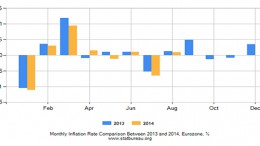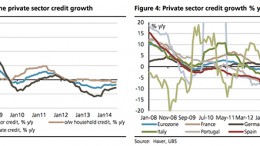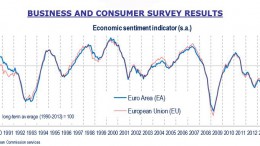Change of pace in Europe: Spain, Portugal, Ireland and Belgium will lead growth between 2015 and 2016
MADRID | By Julia Pastor | ECB’s Mario Draghi brought put the bleak panorama that the Eurozone’s economy is facing on the table, and we saw it again reflected in the not-so-promising September manufacturing PMI. The index came in at 50.5 compared to 50.7 in the prior month, whereas EZ Services PMI accelerated at 52.8 for September versus 53.1 in August. Even the composite index plummeted to its lowest fee in the last nine months and reached 52.3. In Germany, both manufacturing and services indexes have also decreased; while in France only manufacturing improved, although it is still contracting.





